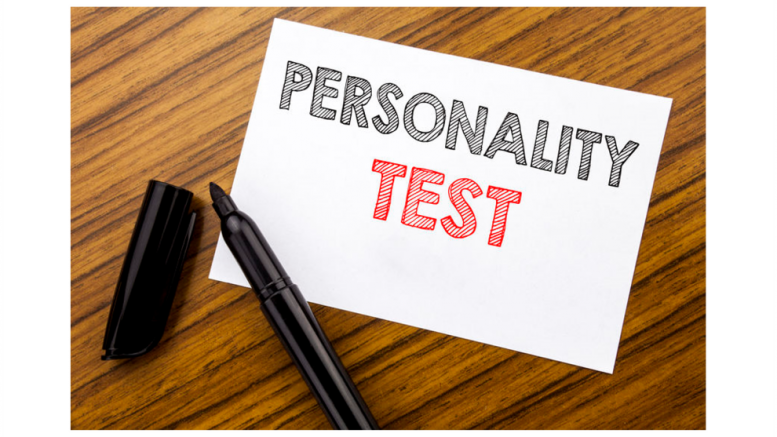In today’s rapidly evolving business landscape, self-awareness has become a critical trait for effective leadership. Leaders who understand their own personality traits and behavioural tendencies can navigate challenges more adeptly, build stronger teams, and lead with authenticity. One of the most impactful ways to deepen self-understanding is by leveraging personality tests.
While these tests may not provide a definitive picture of who you are, they offer valuable insights that can guide personal growth and leadership evolution. Here I share 5 key personality assessments that every leader would want to consider unlocking their full potential.
- The Myers-Briggs Type Indicator (MBTI)
One of the most popular and widely used assessments in the world, the Myers-Briggs Type Indicator (MBTI), is based on Carl Jung’s theory of psychological types. It classifies individuals into 16 distinct personality types based on four dichotomies: Extroversion vs. Introversion, Sensing vs. Intuition, Thinking vs. Feeling, and Judging vs. Perceiving.
For leaders, the MBTI can be invaluable in understanding how they interact with others, make decisions, and approach problem-solving. For example, if you’re an ENTJ (Extraverted, Intuitive, Thinking, Judging), you may tend to take a big-picture, decisive approach to leadership. Understanding these tendencies helps leaders recognize where they might need to adapt their style for different situations or individuals.
How it helps: Leaders can use MBTI to improve team communication, delegate tasks more effectively, and create a work environment that caters to different working styles.
- The Big Five Personality Traits (OCEAN)
The Big Five Personality Traits model, also known as OCEAN (Openness, Conscientiousness, Extraversion, Agreeableness, and Neuroticism), is another powerful tool for self-assessment. Unlike MBTI, the Big Five is more rooted in scientific research and provides a more comprehensive view of an individual’s personality.
For leaders, understanding where they fall on the spectrum of these five traits can be incredibly enlightening. For example, leaders high in Openness tend to be more creative and open to new ideas, while those high in Conscientiousness are typically more disciplined and reliable.
How it helps: By recognizing their strengths and weaknesses in these five domains, leaders can work on balancing their traits, improving emotional regulation, or embracing innovation where it might feel uncomfortable.
- Emotional Intelligence (EQ) Assessment
Leadership is no longer just about delivering results; it’s about fostering relationships and inspiring teams. Emotional intelligence (EQ) has emerged as a core competency in effective leadership and taking an EQ assessment can provide insights into your ability to manage both your own emotions and the emotions of others.
EQ assessments typically evaluate skills in self-awareness, self-regulation, motivation, empathy, and social skills. Leaders with high emotional intelligence are more adept at navigating interpersonal dynamics, managing conflict, and maintaining a positive work culture.
How it helps: Leaders can use EQ insights to improve their communication, enhance team morale, and foster a more empathetic and inclusive leadership style.
- CliftonStrengths (formerly StrengthsFinder)
CliftonStrengths (also known as StrengthsFinder) is an assessment developed by Don Clifton while he was chairman of Gallup, Inc. This assessment focuses on identifying your top strengths rather than pointing out weaknesses. This test helps leaders understand their core competencies and how to leverage them effectively.
Leaders who know their strengths can align their leadership approach with tasks that come naturally to them, while surrounding themselves with individuals whose strengths complement their own. This creates a more balanced, high-performing team.
How it helps: Understanding your strengths allows leaders to delegate more effectively, focus on areas of high impact, and avoid burnout by not overextending themselves into areas that don’t align with their natural talents.
- DISC Personality Test
The DISC Personality Test focuses on four primary behavioural traits: Dominance, Influence, Steadfast, and Conscientiousness. Unlike other personality tests, DISC is particularly useful in understanding how you behave in professional environments and how you interact with others under stress.
For example, leaders who score high in Dominance tend to be assertive and results-oriented but may need to work on collaboration. Conversely, those high in Steadiness may excel at supporting and listening but may need to develop more assertiveness in decision-making.
How it helps: DISC enables leaders to tailor their communication and management approach to the needs of their team, fostering better collaboration and minimizing workplace friction.
Why Personality Tests Matter for Leadership Development
I recall an interview with a large banking global conglomerate which needed me to take a test, a detailed one! Understanding your personality is an ongoing process, and these assessments are just tools to aid in that journey. Leadership requires not just skill and experience, but deep self-awareness and adaptability.
These five personality tests can help leaders,
- Build deeper connections with their teams by understanding diverse personality traits.
- Adapt their leadership style to different situations and individuals.
- Strengthen their decision-making by being aware of their cognitive biases and emotional triggers.
- Cultivate empathy and emotional intelligence, which are increasingly recognized as key drivers of successful leadership.
- Encourage continuous personal growth, essential for evolving in today’s dynamic leadership landscape.
As you evolve as a leader, embracing the insights from these tests can guide you toward more authentic, effective leadership—one that not only drives success but also fosters a thriving, engaged team.
The views and opinions published here belong to the author and do not necessarily reflect the views and opinions of the publisher.



Be the first to comment on "Leadership Potential: Five Personality Tests Every Leader Should Take for Self-Evolution"